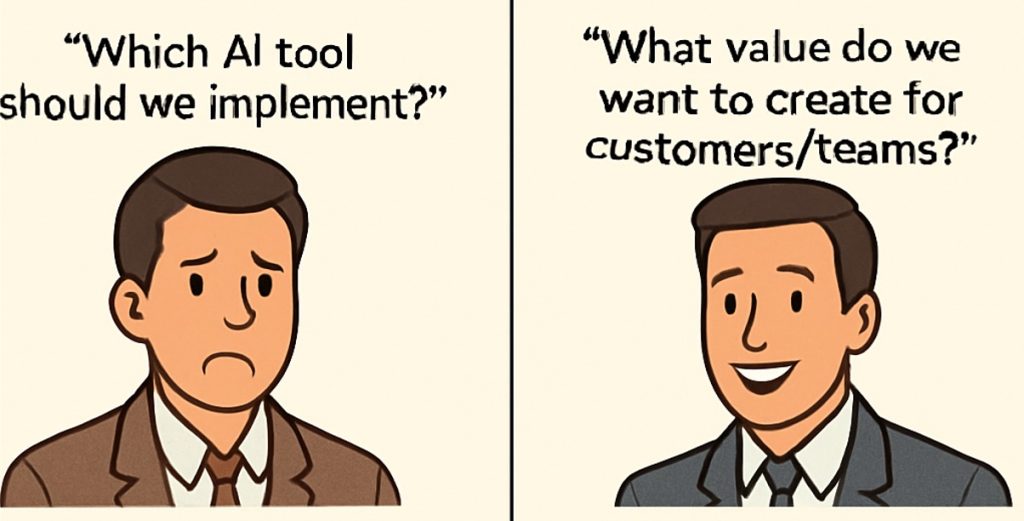In my long career I have been fortunate to work for some great managers. In the 15 years of experience as a coach, I have interacted with managers who have been my coachees, as well as their (coachees’) managers. I have done some analysis of the working styles of all these managers and found that four “stereotypes” that emerge from the analysis to be of interest. There are many other types that I am not talking about but would love to hear from you based on your own experiences.
A typical manager’s skills can be looked at from three dimensions – those related to technical, managerial and people. In each of the stereotypes that I discuss, you would find one or two of these dominating while in the last one, there is a nice balance of skills on all three dimensions.
1. The super-delegator
The first type is a manager who typically says, “JV, you are a great manager. You can manage everything and don’t need me for any decisions. Go ahead and run the show”. They then take on other higher-level objectives for themselves – like building relationships with their own managers / peers / customers or in industry forums. Their lack of technical depth prevents them from getting into details. Under normal circumstances, these are really great managers to work for, with their hands-off approach. However, when crises occur, they start showing their true color. For example, when a customer sends a nasty report on your product installation, they can quickly turn back on you and treat you as if you let them down badly. Overnight you become a villain from having been a hero before that. This type of manager will be a big success if they have very capable people reporting to them – those who not only plan and execute well but know when and how to involve those managers, so they can support you, as the one running the show, to avoid or deal with imminent crises.
2. The “sophisticated” bossy type
This type of manager is perhaps the most difficult type to work for. They are very good technically and have an extraordinary task focus. However, they can’t be classified as the “command and control” type since they exhibit a dual personality. While being task focused, they will say all the right things about people orientation. For example, statements like “you can feel empowered” and “I will support you in all your decisions” etc. They project an image of being “people oriented” to the whole organization while in reality they are low on people orientation. With them you don’t have the right environment for you to feel empowered. They expect you to develop the hard way – going through the test of fire on the job – and through your own initiative. They can be intimidating in project or function reviews, and if you are not prepared for the reviews, you may feel humiliated at times. However, outside of all these reviews and project situations, they will look very friendly and nice to you.
The thing these managers look for in their reportees is loyalty. If you are capable, loyal and can deal with somewhat harsh and direct feedback, you may manage working for this type of manager well. You will learn – the hard way mostly – because their managerial and technical ability will rub off on you over time. However, if you are sensitive, you may need to develop a thick skin to deal with the feedback you get. In a sense, you will also learn how not to manage or treat people and their development while being task-focused.
3. The technical force-fit
This type of manager is typically one who has come up through the ranks and is very good technically. They get a lot of respect from their next line and are able to guide them well technically. Their technical expertise also gets them a lot of respect from their counterparts abroad – especially in a GIC or offshore product development set-up. However, they are often a force-fit in a managerial role because organizations find it difficult to provide them good technical careers. Further, most organizations do not take the initiative in developing their managerial competencies. What this does is that, while they manage technical issues well, they are unable to foresee management issues (such as those related to Project Management) nor use data and appropriate analysis to manage risks proactively. They often get exposed in management or governance reviews that focus on metrics and review of project risks.
These are essentially people who first need to be evaluated for suitability and interest in managerial skills, and if found suitable, should be trained and coached well in those skills. Alternately they should be given suitable technical careers.
4. The “Sound” manager
We finally look at a type of manager who are a pleasure to work for. I have personally seen many people, who have developed into top performers, have invariably had the fortune of working for such a type of manager during the key development phase of their careers.
This type of manager demands performance and excellence from their reports but provides them support, guidance and constructive feedback for them to succeed. They instill a sense of confidence in them that makes them feel comfortable about taking decisions. They support them in their decisions and help them learn through constructive feedback. They stand firmly behind their reports in crises – they let them handle crises but would ensure that they (as their managers) take the responsibility to deal with the customer or business impact as a result of that. Due to their own technical, managerial ability and self-confidence, they never have a feeling of insecurity and hence focus on developing people around them. They know that the grow when their people grow.
All four types can be successful managers, and to different degrees, based on their organization context, culture, capability of their reportees and so on. However, it is obvious, that the more rounded you are (being closer to the “sound” type) the more sustained is the success that you will achieve. In addition you will also develop capable reportees that will further enhance your contributions.
While these are from my own as well as my coachees’ experiences, would love to hear from you on what you think of these stereotypes (or others you may have come across) and what your experiences and views are, so we all can learn from each other.
JV





